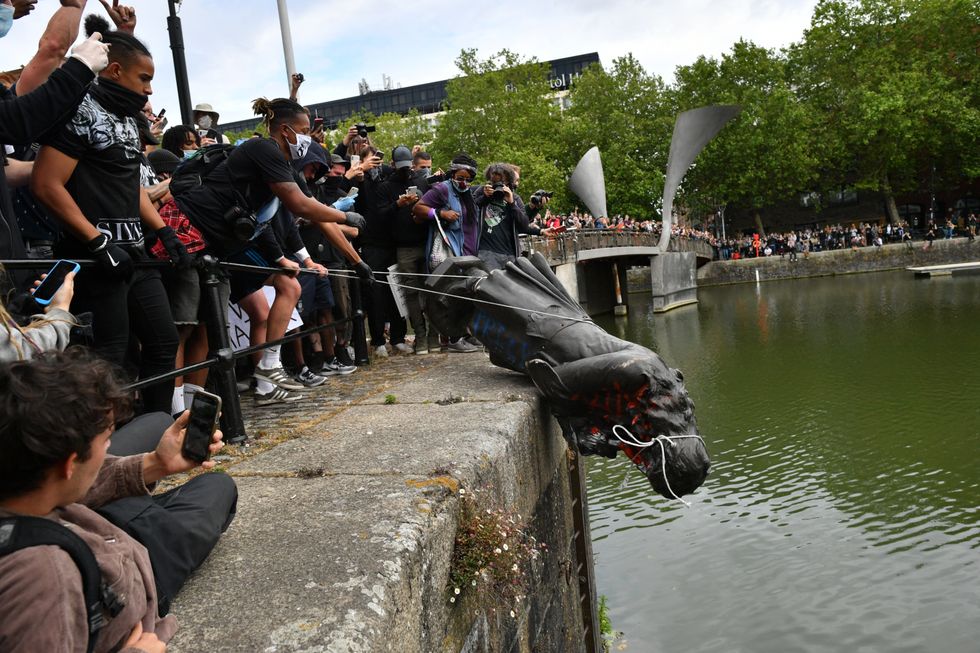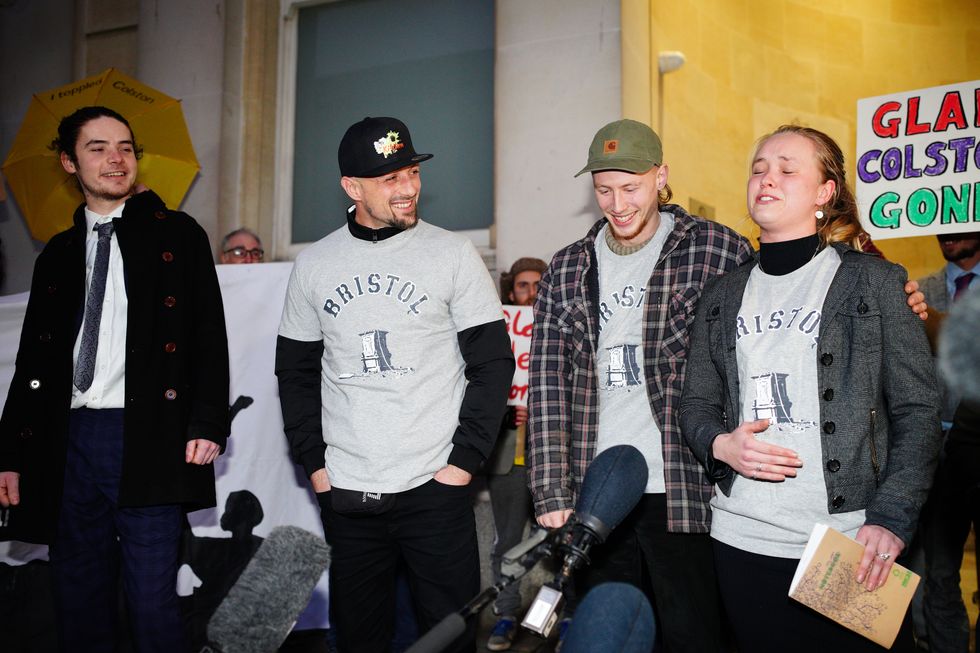Don't Miss
Most Read
Trending on GB News
The Edward Colston statue case has been sent to the Court of Appeal as the Attorney General wants clarification over the ruling.
The verdict in January this year found the Colston Four not guilty for their role in pulling down the statue of 17th-century slave trader Edward Colston during a Black Lives Matter protest in Bristol.
Despite acknowledging their part in toppling the monument and rolling it into the harbour, Rhian Graham, 30, Milo Ponsford, 26, Sage Willoughby, 22, and Jake Skuse, 33, were acquitted of criminal damage.
Suella Braverman QC has now asked judges for clarity on the use of human rights as a defence in cases of criminal damage.
Protesters throwing statue of Edward Colston into Bristol harbour during a Black Lives Matter protest rally
Ben Birchall
The Conservative MP for Fareham added that she had also asked the court to consider whether it was up to juries to decide if a criminal conviction is a proportionate interference with someone’s human rights.
During the trial in December and January of this year at Bristol Crown Court, the four defendants each claimed the statue was offensive and a hate crime towards Bristol’s black community.
Sage Willoughby compared the statue with Nazism, saying: “Imagine having a Hitler statue in front of a Holocaust survivor – I believe they are similar.”
In his directions to jurors, Judge Peter Blair QC said they had to balance the defendants’ human rights against the legislation contained within the Criminal Damage Act.
Sage Willoughby, Jake Skuse, Milo Ponsford and Rhian Graham outside Bristol Crown Court
Ben Birchall
He said individuals have the right to freedom of thought and conscience and to manifest one’s beliefs, and the right to freedom of expression.
Judge Blair said: “These rights protect not only beliefs, such as anti-racism, and speech itself, but also actions associated with protest.
“Even where those actions have more than a minimal impact on the rights of other people, they need not result in a conviction. It is all a matter of fact and degree.”
He said limitations on human rights are permitted under laws including the Criminal Damage Act if it is “in the interests of public safety or for the protection of the rights and freedoms of others”.
The issue of human rights was the last question in the “route to verdict”.
The jury was asked if it was sure a conviction for criminal damage would be “a proportionate interference” with the defendants’ “rights to freedom of thought and conscience, and to freedom of expression”.
Jurors were told if they were sure the answer was “yes” the verdict should be guilty, and if “no” it should be not guilty.
Ms Braverman said: “After careful consideration, I have decided to refer the Colston statue case to the Court of Appeal to clarify the law around protests.
“Trial by jury is an important guardian of liberty and critical to that are the legal directions given to the jury.”
She added: “It is in the public interest to clarify the points of law raised in these cases for the future. This is a legal matter which is separate from the politics of the case involved.”
Any future ruling by the Court of Appeal will not impact the four defendants’ acquittals.












